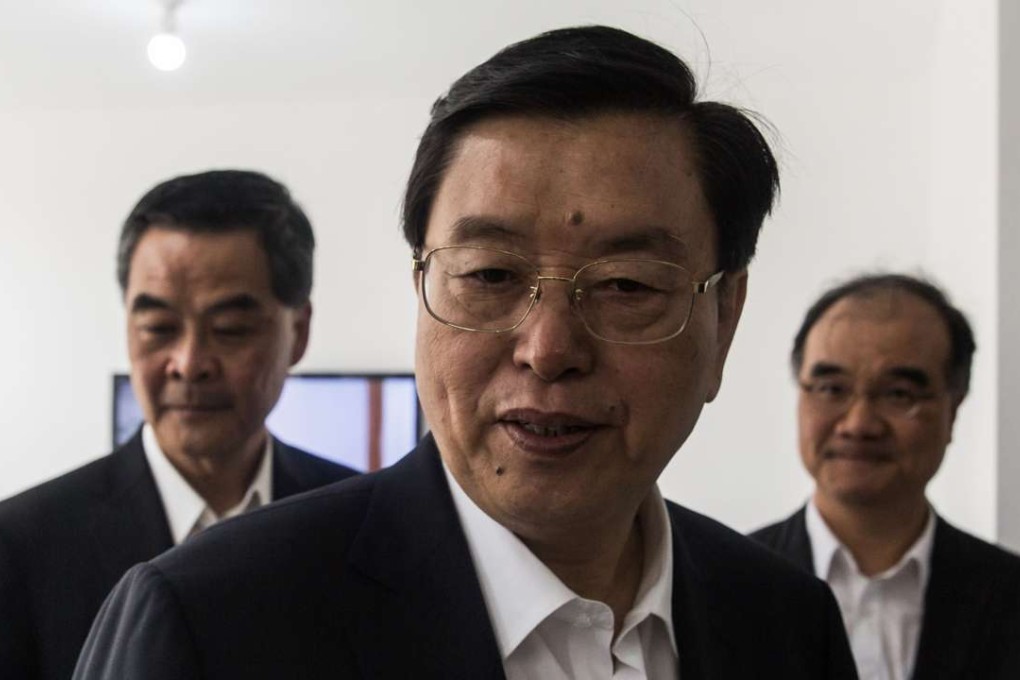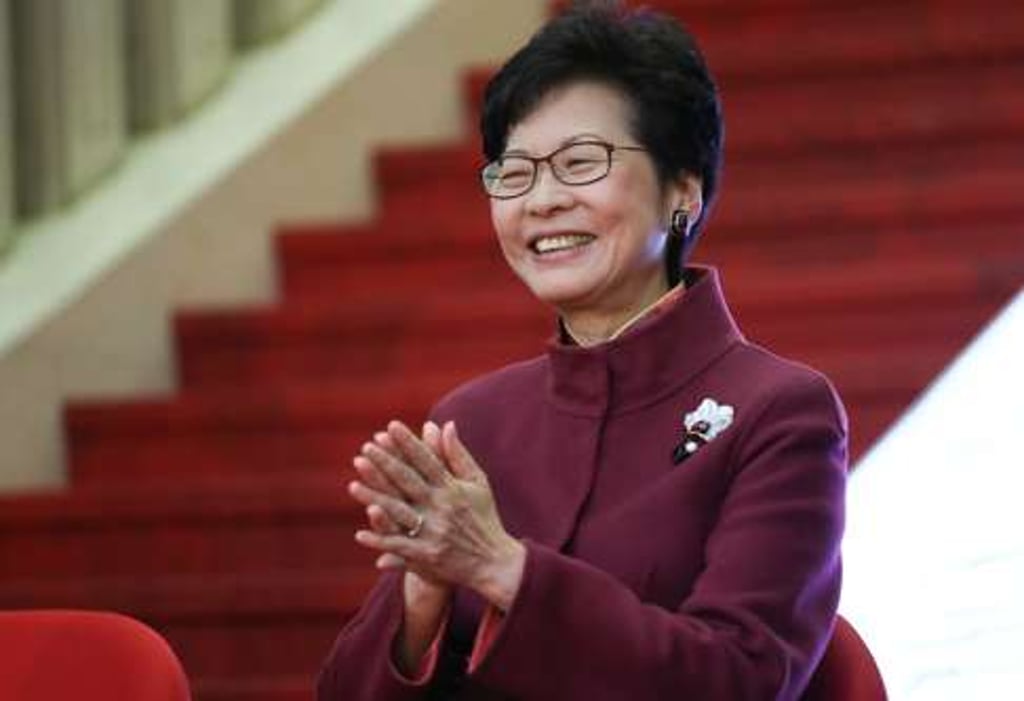Advertisement
Two Chinese state leaders reveal Beijing’s backing for Carrie Lam as Hong Kong leader in Shenzhen meetings
Decision to back Lam was made at a meeting of the Politburo Standing Committee on December 25, according to a source
Reading Time:2 minutes
Why you can trust SCMP

Two Chinese state leaders were in Shenzhen earlier this week to inform Hong Kong’s Beijing loyalists of the decision made over Christmas by the Communist Party’s highest body to back Carrie Lam Cheng Yuet-ngor in the chief executive election.
Amid speculation that Beijing’s liaison office in Hong Kong does not represent the stance of the central government, Zhang Dejiang, chairman of the National People’s Congress, told leaders of business chambers and pro-establishment figures that Lam was indeed Beijing’s preferred candidate for the top job, according to a source with knowledge of the meetings on Sunday and Monday.
“The decision was made at the meeting of the Politburo Standing Committee on December 25,” the source said.
Another source familiar with the situation said Hong Kong’s richest man, Li Ka-shing, was present at the meetings
Advertisement
The tycoon and representatives of his companies were conspicuously absent from Lam’s election rally last Friday.
Li and his sons, Victor Li Tzar-kuoi and Richard Li Tzar-kai, were spotted visiting Beijing’s liaison office in Hong Kong on Wednesday.
Advertisement

Zhang, the third-ranking leader in the Politburo, is head of the Communist Party’s leading group on Hong Kong and Macau affairs.
Advertisement
Select Voice
Choose your listening speed
Get through articles 2x faster
1.25x
250 WPM
Slow
Average
Fast
1.25x